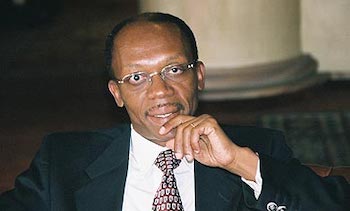Jean-Bertrand Aristide

Jean-Bertrand Aristide (born 1953) is a Haitian former Catholic priest, liberation theologian, and politician who became the first democratically elected president of Haiti in 1990. A champion of the poor and a vocal critic of Haiti’s elite and military regimes, Aristide rose to prominence as a charismatic priest advocating for social justice, inspired by liberation theology. His presidency was marked by efforts to reform Haiti’s deeply unequal social structure, but it was also fraught with political turmoil, including multiple coups d’état that removed him from office in 1991 and again in 2004. Despite controversy and opposition, he remained a symbol of hope for many of Haiti’s impoverished citizens. Aristide later went into exile but returned to Haiti in 2011. His life and leadership continue to reflect the tensions between grassroots empowerment, foreign intervention, and domestic political struggle in Haiti.

Eyes of the Heart: Seeking a Path for the Poor in the Age of Globalization (2000)
Info: Eyes of the Heart: Seeking a Path for the Poor in the Age of Globalization (2000) by Jean-Bertrand Aristide is a passionate critique of globalization and its devastating effects on poor nations, particularly Haiti. Drawing from his experience as a former president and Catholic priest, Aristide argues that global economic policies—driven by institutions like the IMF and World Bank—have deepened poverty, inequality, and social injustice in the developing world. He highlights how structural adjustment programs, debt burdens, and foreign exploitation strip poor countries of their sovereignty and resources. Aristide calls for a new path that prioritizes human dignity, solidarity, and economic justice, advocating for models of development that empower the poor rather than enrich the already powerful. The book blends personal testimony, political analysis, and moral urgency, offering a compelling vision of grassroots resistance and ethical leadership in the face of global capitalism.